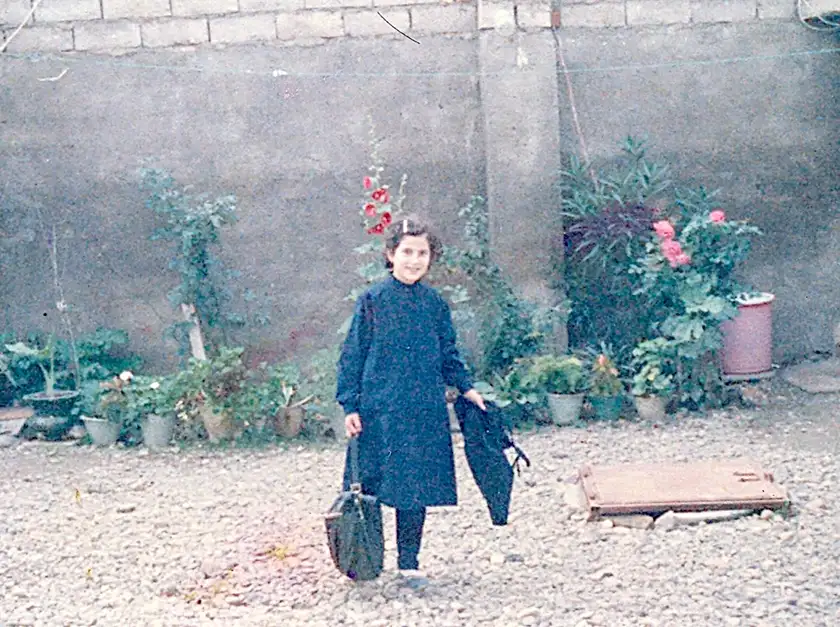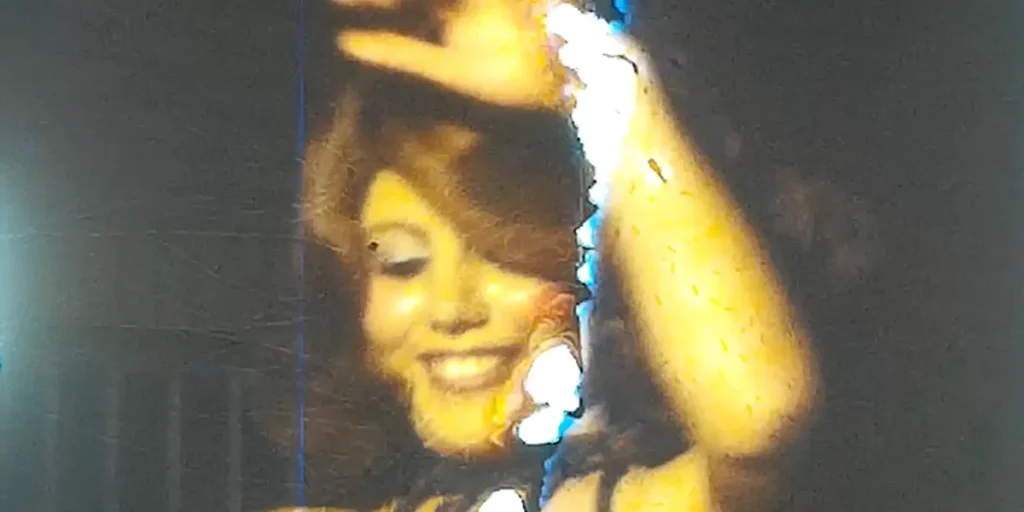Farahnaz Sharifi’s My Stolen Planet shows us the power of film as a tool of resistance and a way to remember history.
Director: Farahnaz Sharifi
Genre: Documentary
Run Time: 82′
BFI London Film Festival Screening: October 18-20, 2024
U.S. Release Date: TBA
U.K. Release Date: TBA
“The first blow of the revolution lands on women’s bodies,” is one of the opening sentences of My Stolen Planet (Sayyareye Dozdide Shodeye Man). From the very beginning, it is clear that the documentary is going to focus on the loss of freedom that women in Iran faced after the Islamic revolution. Many of us in the audience may be familiar with such topics through history books or even newspaper articles and, most recently, breaking news.
However, seeing it with our own eyes in this film creates a much more meaningful and emotional narrative by telling a personal story that soon becomes the collective memory of a country torn by protests and dictatorship.
My Stolen Planet starts three weeks after the Islamic Revolution in Iran, as the initial voiceover immediately mentions. As it goes on, the documentary becomes a personal recollection of history through the eyes of an Iranian woman who lived through it and suffered the consequences of the revolution in Iran and the very limiting rules its citizens live under. In a country where dancing, singing, or even filming are forbidden, the price to pay for freedom may very well be their own life or fleeing the country, in the case of the director and protagonist of the film, Farahnaz Sharifi.
The documentary is at its best when it highlights the sheer radical power of filmmaking through its content and aesthetics. As it goes on, My Stolen Planet never fails to remind us that the fact that any footage of the protests in Iran exists is itself a revolutionary act. Towards the end of the documentary, the protagonist reinforces this by telling us that “sometimes we lose our lives to record.” While much of the documentary is about filmmaking as a tool of insurrection and self-protection in more ways than one, it is also ultimately about all the Iranian women who died fighting for their freedom, as the final intertitle reminds us.
By giving a platform to the women in Iran, whose voice is so often suppressed by their own country, the film amplifies the importance of what it is showing us. At first, the audience may be thinking we are simply watching archival pictures of women in Iran or videos of people dancing and singing, some of which are in a phone format and present the quality and visuals of home videos. But it becomes increasingly clear as we watch My Stolen Planet that these are not simple photos or normal footage but instead a way of remembering those whose lives were lost. As they sing and dance in what may seem an ordinary fashion, we come to realise that those acts alone are revolutionary and against the system.

Despite its very necessary discussion on the events in Iran, the film’s structure and storytelling ultimately damage what could have otherwise been an excellent product. In many ways, the film seems too confused about what it wants to be. Partially a personal diary, partially archival footage, and even partially a crowdsourced documentary, My Stolen Planet does not really fit into any box or choose what exactly it wants to be. The narrative is also too expositionary, often explaining too much of what we see on the screen without trusting the audience to understand it for themselves. The voiceover that always accompanies the pictures and footage we see in the documentary soon becomes too repetitive as a format and hurts the overall pacing and flow of the film.
Overall, My Stolen Planet is an incredibly important documentary but one whose story could have potentially been told in a more efficient way. I wish the film would have focused on its mission of portraying the collective history and memory of Iran through the retelling made by women rather than always circling back to the personal story that originated this documentary. For its subject matter, however, it is still a documentary worth seeing as it shines a light on an issue that is still very much real in Iran today.
My Stolen Planet will be screened at the BFI London Film Festival on October 18-20, 2024. Read our list of 30 movies to watch at the 2024 BFI London Film Festival!

